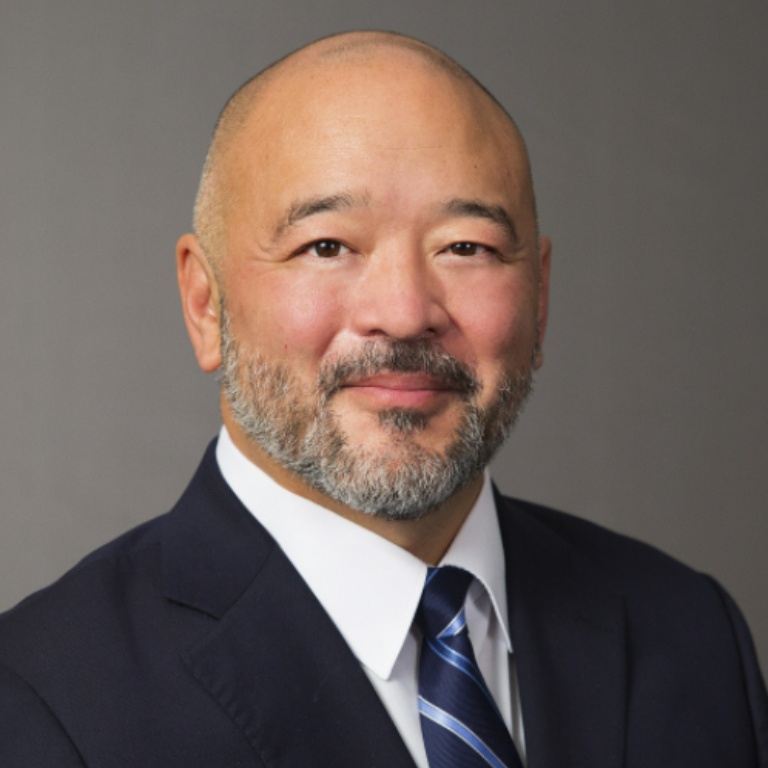IU’s legacy of diversity continues at IU Northwest with Iwama, a 2014 Millennium Leadership Initiative graduate
In 1998, a visionary group of African American college and university leaders — including former Indiana University Vice President Charlie Nelms and Indiana University Southeast Chancellor Emeritus F.C. Richardson — conceived the need for a program that would help higher education professionals from traditionally underrepresented backgrounds become chancellors and presidents.
The result was the formation of the American Association of State Colleges and Universities (AASCU) Millennium Leadership Initiative (MLI), a competitive and rigorous program that helps its participants develop the skills necessary to take on the top levels of higher education administration.
Fast forward 25 years, Indiana University Northwest Chancellor Ken Iwama — a 2014 graduate of the MLI program — is pleased to have been asked to join MLI’s national executive steering committee, a committee of the AASCU Board of Directors, noting that those who came before him have bequeathed a “legacy of involvement.”
“Those predecessors had many more challenges and I'm a beneficiary of their work,” Iwama said.
The fit between Iwama and MLI was seamless, says John Silvanus Wilson Jr., executive director of AASCU’s MLI program.
“Ken is a great communicator and a great fundraiser,” he said, noting how important such skills are to higher education administrators, especially in today’s world with lower enrollment rates and financial challenges affecting every college and university.
Wilson was also impressed with Iwama’s legal background. Iwama holds a J.D. from Seton Hall Law School, as well as a bachelor’s degree in English from the University of New Hampshire and a master’s degree in Labor and Employment Relations from the Rutgers University School of Management and Labor Relations.
Essential to his future
Iwama says the training and mentorship he received in the yearlong MLI program was essential to his current success. It’s also been effective for others: four members of his 30-member class cohort are now also chancellors or presidents at universities and colleges.
Both Wilson and Iwama noted there is still a lack of diversity in the upper ranks of higher education. And while that diversity has improved, there is still much work to be done.
In the latest measure of the office of American college presidencies conducted by the American Council on Education, 30 percent are women, 17 percent are people of color, and only five percent are women of color.
“There is clearly plenty of work to do,” Wilson points out.
"Everything is connected"
Iwama feels that his work with the MLI will ultimately prove beneficial for the IU Northwest campus. “Everything is connected,” he said.
Just as MLI is a pipeline to the upper echelon of higher education, he sees himself as a role model for the students of IU Northwest, which is the most diverse of all IU campuses.
“There are a lot of parallels between MLI and what we do at IU Northwest by developing the leaders of tomorrow,” Iwama said.
He adds that an IU Northwest student may be interested in a future career in higher education, which could (eventually) lead them to apply for a spot in the annual MLI class. Once again, making MLI full circle.
Iwama was also recently re-elected to a second term at the Coalition of Urban and Metropolitan Universities (CUMU), the longest-running and largest organization committed to serving and connecting the world's urban and metropolitan universities and their partners.
Members of the executive committee are presidents and chancellors of CUMU member institutions and are elected to serve two-year terms in their respective positions.
Iwama, without a doubt, has taken an active role in enhancing the quality of life of the most diverse, urban and industrialized region of the state. And thanks to his work on national committees, he positions IU Northwest as a top regional university and a leader in the country in promoting diversity, equity and inclusion at the highest ranks.
“Diversity has a legacy at IU,” he says.

